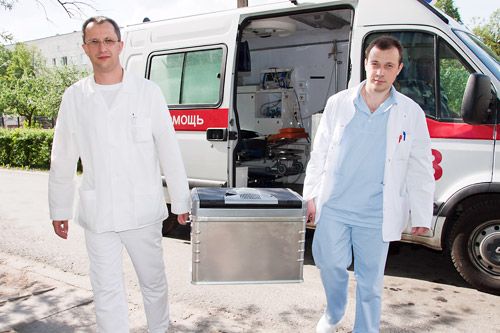Medical expert of the article
New publications
Transplantation: people are not ready to give up their organs
Last reviewed: 01.07.2025

All iLive content is medically reviewed or fact checked to ensure as much factual accuracy as possible.
We have strict sourcing guidelines and only link to reputable media sites, academic research institutions and, whenever possible, medically peer reviewed studies. Note that the numbers in parentheses ([1], [2], etc.) are clickable links to these studies.
If you feel that any of our content is inaccurate, out-of-date, or otherwise questionable, please select it and press Ctrl + Enter.
A leading UK charity has warned that the donor waiting list will never be shortened unless public attitudes change. Research suggests that most people would accept a donor organ if needed, but very few are willing to donate their own.

The data was provided by leading British research centre Kidney Research UK. The survey was conducted to assess public opinion and attitudes towards issues of donation and transplantation.
The survey results show that 87% of people in the UK would agree to an organ transplant if they needed one, but significantly fewer people are willing to 'share' their organs even after death.
Around 50,000 people in the UK suffer from kidney failure. Of these, 7,000 are on the waiting list for a transplant, accounting for 90% of all patients on the NHS waiting list.
Due to the high risk of developing chronic kidney disease, as well as the natural aging process, the demand for donor organs is expected to continue to increase. Once again, demand will exceed supply.
“The ongoing shortage of donor organs is the number one issue facing the UK. It is something that is acutely felt by everyone on the waiting list for a transplant, or by anyone who is sick,” said Professor Tim Goodship. “The average wait for a kidney is around three years. Plus, there are those with complications and rare blood types who wait much longer. In light of recent events, we would like to ask people to pay more attention to the issues of transplantation, because no one is immune from this. Your organs may not be of any use to you after you die, but they could save someone’s life.”
"Imagine that you have been diagnosed with kidney failure and are facing life on dialysis or death. It all depends on how the disease "behaves". The only salvation is a donor organ transplant. Ask yourself whether you would agree to this if you were in mortal danger. If the answer is yes, then consider becoming a donor, because anyone could be in the place of the patient today tomorrow," Professor Goodship concluded.
The attitude of the potential donor's relatives to his decision is also of no small importance. It is very important that people registered in the transplant program discuss their wishes with their relatives, because the family has the final, decisive word in this matter.

